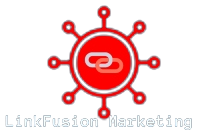Introduction:
In today’s digital age, where information is just a click away, content marketing has emerged as a cornerstone strategy for businesses looking to engage, educate, and ultimately convert their target audience. This dynamic approach goes beyond traditional advertising, offering valuable insights, entertainment, and solutions to consumers’ problems. In this blog, we’ll explore the captivating world of content marketing, its benefits, and how it can shape the future of your business.
The Essence of Content Marketing:
At its core, content marketing revolves around creating and distributing relevant, high-quality content to attract and retain a specific audience. This content can take various forms, including blog posts, videos, infographics, podcasts, and more. Unlike traditional advertising, which often feels intrusive, content marketing aims to provide genuine value to consumers, positioning brands as trustworthy authorities in their respective industries.
Building Trust and Authority:
In an era where consumers are increasingly skeptical of advertising messages, content marketing emerges as a beacon of authenticity. By delivering informative and insightful content, brands can establish themselves as industry thought leaders. When consumers find consistent value in a brand’s content, they’re more likely to trust its products or services. This trust not only leads to higher customer loyalty but also encourages word-of-mouth marketing as satisfied customers recommend the brand to others.
Creating Meaningful Connections:
Content marketing allows businesses to connect with their target audience on a personal level. By addressing common pain points, answering questions, and providing solutions, brands can demonstrate that they understand and care about their customers’ needs. This emotional connection fosters brand loyalty and can even turn customers into brand advocates who actively promote the brand to their networks.
Boosting SEO and Visibility:
Search engines love fresh, relevant content. Regularly updating your website with valuable content gives search engines more reasons to index your pages, improving your overall website’s visibility in search results. This leads to increased organic traffic, allowing businesses to reach a wider audience without relying solely on paid advertising.
Tailoring Content for Different Stages of the Buyer’s Journey:
The buyer’s journey consists of three main stages: awareness, consideration, and decision. Content marketing allows you to create content that resonates with customers at each of these stages. Informative blog posts and educational videos cater to those in the awareness stage, helping them understand their problems. In-depth guides and comparison articles target consumers in the consideration stage, aiding their decision-making process. Finally, product demos and success stories help those in the decision stage finalize their choices.
Measuring Success and Adaptation:
One of the remarkable aspects of content marketing is its measurability. Various analytics tools allow businesses to track engagement metrics such as website traffic, social media shares, click-through rates, and conversion rates. By analyzing these metrics, brands can gain insights into what works and what doesn’t, enabling them to refine their content strategy for optimal results.
Conclusion:
In an era defined by information overload, content marketing provides a breath of fresh air for both businesses and consumers. By offering valuable content that informs, entertains, and solves problems, brands can forge deeper connections with their target audience. As the digital landscape continues to evolve, the power of content marketing will remain a driving force behind successful businesses, enabling them to not only survive but thrive in a competitive marketplace.




